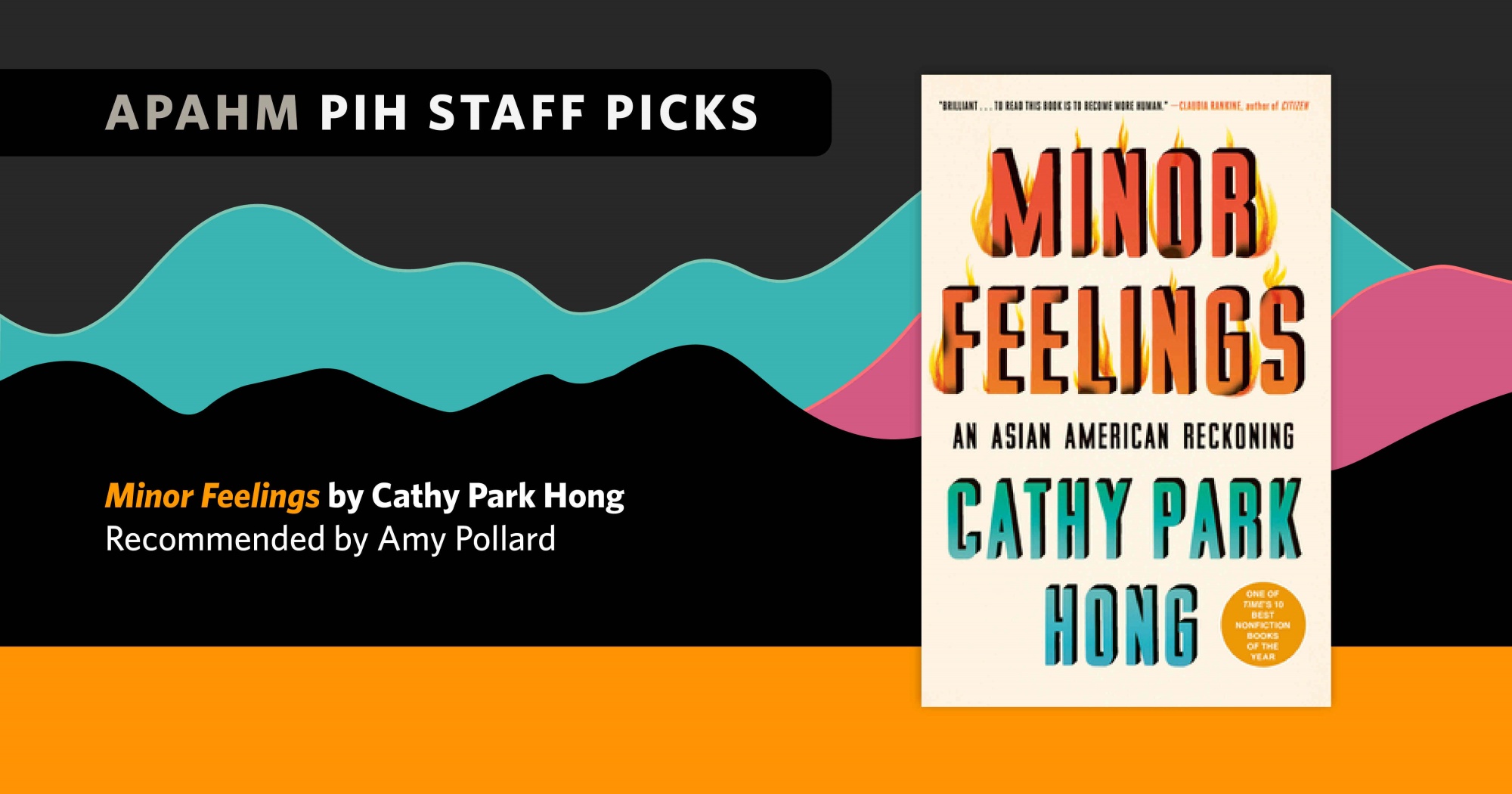
“As an Asian American, I feel so seen by Minor Feelings and highly recommend it. It’s difficult to read at times, but so much of it resonates with me. Hong’s writing contains multitudes—simultaneously tender and abrasive, earnest and sardonic, offbeat and poignant. I love how she weaves personal stories into larger historical and cultural narratives exploring what it means to be Asian American, in a country founded on stolen Indigenous land, built by enslaved Black people, further constructed by exploited Asian and Latinx laborers, and with the blood of millions of Asians on its hands, from its wars across Asia to anti-Asian violence at home. This book will challenge you to think beyond the Black-white binary in the U.S. and expose the model minority myth for what it is—a myth, designed to uphold anti-Blackness and white supremacy and to suppress cross-racial solidarity and its inherent threat to the status quo.”
— Amy Pollard, Writer and Editor
|
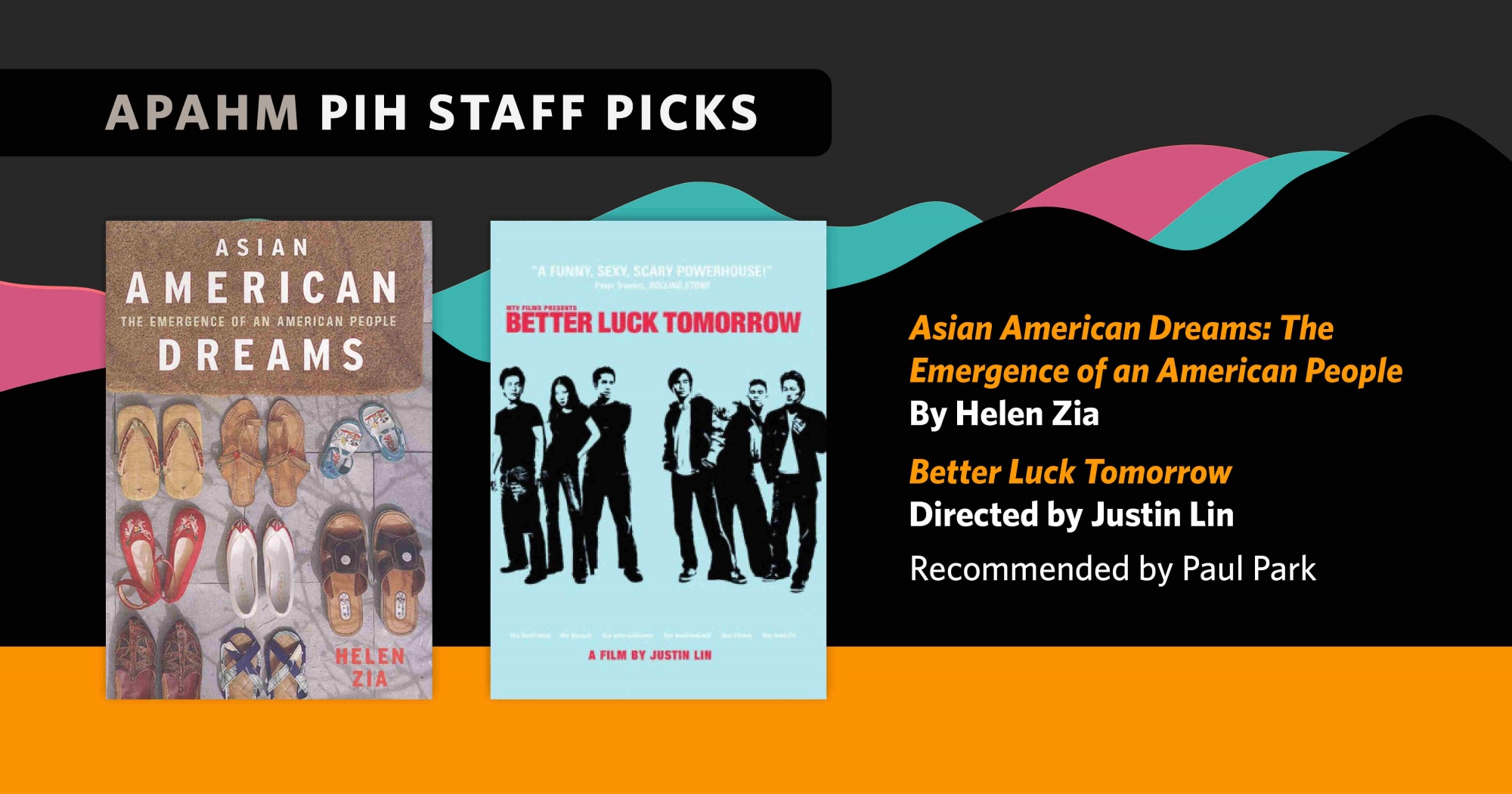
“Asian American Dreams: The Emergence of an American People is the most important book that I’ve read in terms of self-discovery. Author Helen Zia not only provides an excellent socio-political history and landscape analysis through an anthropology lens, but she writes many of the chapters from a first person perspective as she was on the front lines as an advocate and writer for decades. Published in 2001, this book was the first opportunity for many Asian Americans to be able to learn and explore how their identity of ‘Asian American’ came to be. It filled a void left by the US education system and public discourse. I also recommend the movie Better Luck Tomorrow. Justin Lin (Fast & Furious) maxed out multiple credit cards to fund this film after original funders refused to back a film that wasn’t an all-white cast. To prove a point, he hired an all Asian American cast. This is a coming-of-age story for Orange County Asian American high school students who at first glance may seem like the typical model minorities. The film was an official selection at the 2002 Sundance Film Festival and also includes the origin story of Han (Fast and the Furious character). I remember being in awe watching this for the first time and witnessing a cast of young Asian Americans born and raised in the U.S. filling the screen.”
—Paul Park; Director of Implementation, NCD Synergies
|
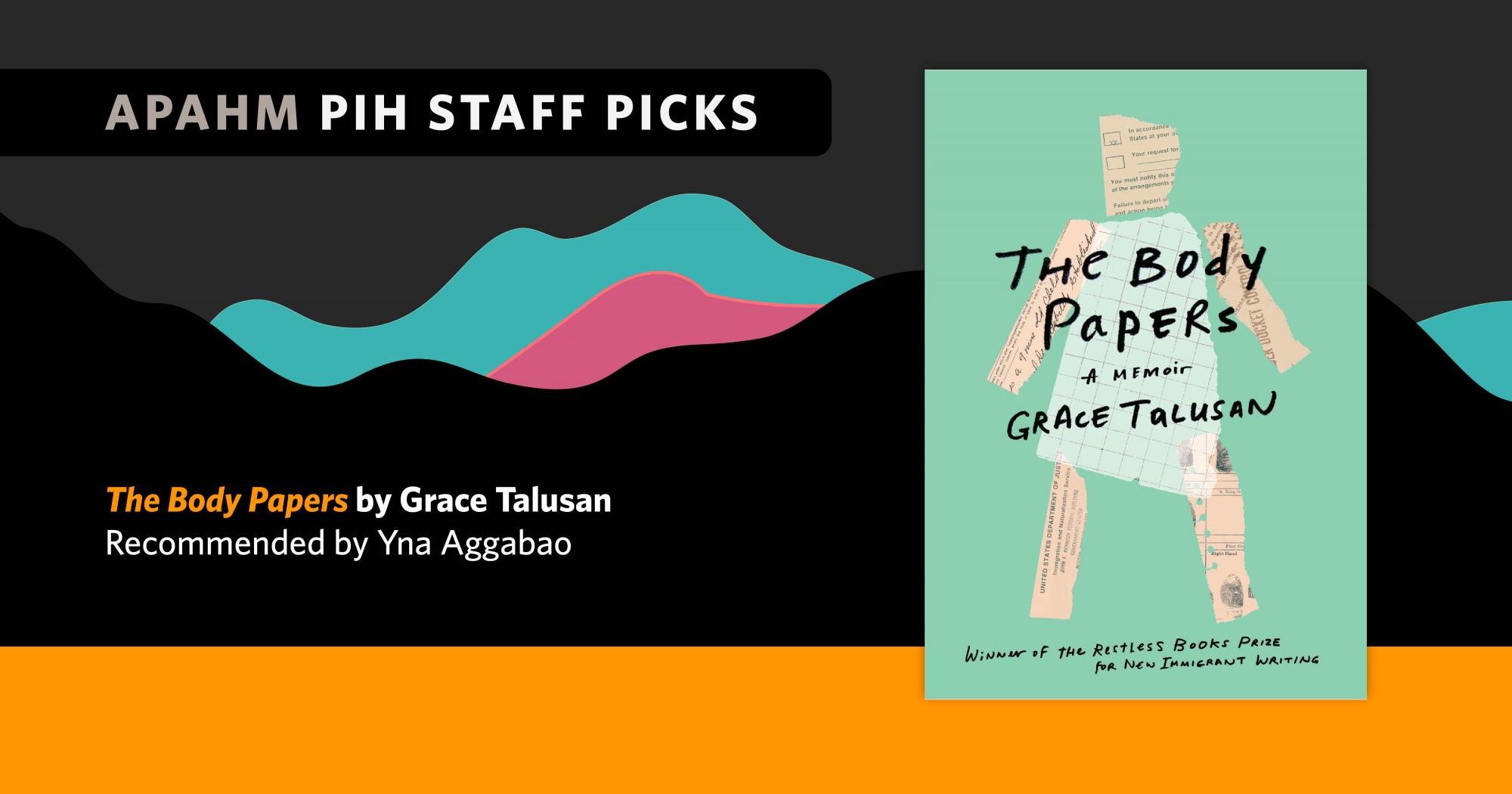
“The Body Papers is a truly moving memoir by Filipino-American immigrant writer Grace Talusan. She describes her life growing up in a Filipino family so beautifully, showcasing layers of complexity to what may seem to outsiders as a one dimensional ‘immigrant’ experience. Her story might be a painful one to read, with its themes of abuse and illness, but I think she really captures how there’s more to the AAPI story than what is seen in the media or even through interactions with AAPI people in your life.”
—Yna Aggabao, Social Media Manager
|
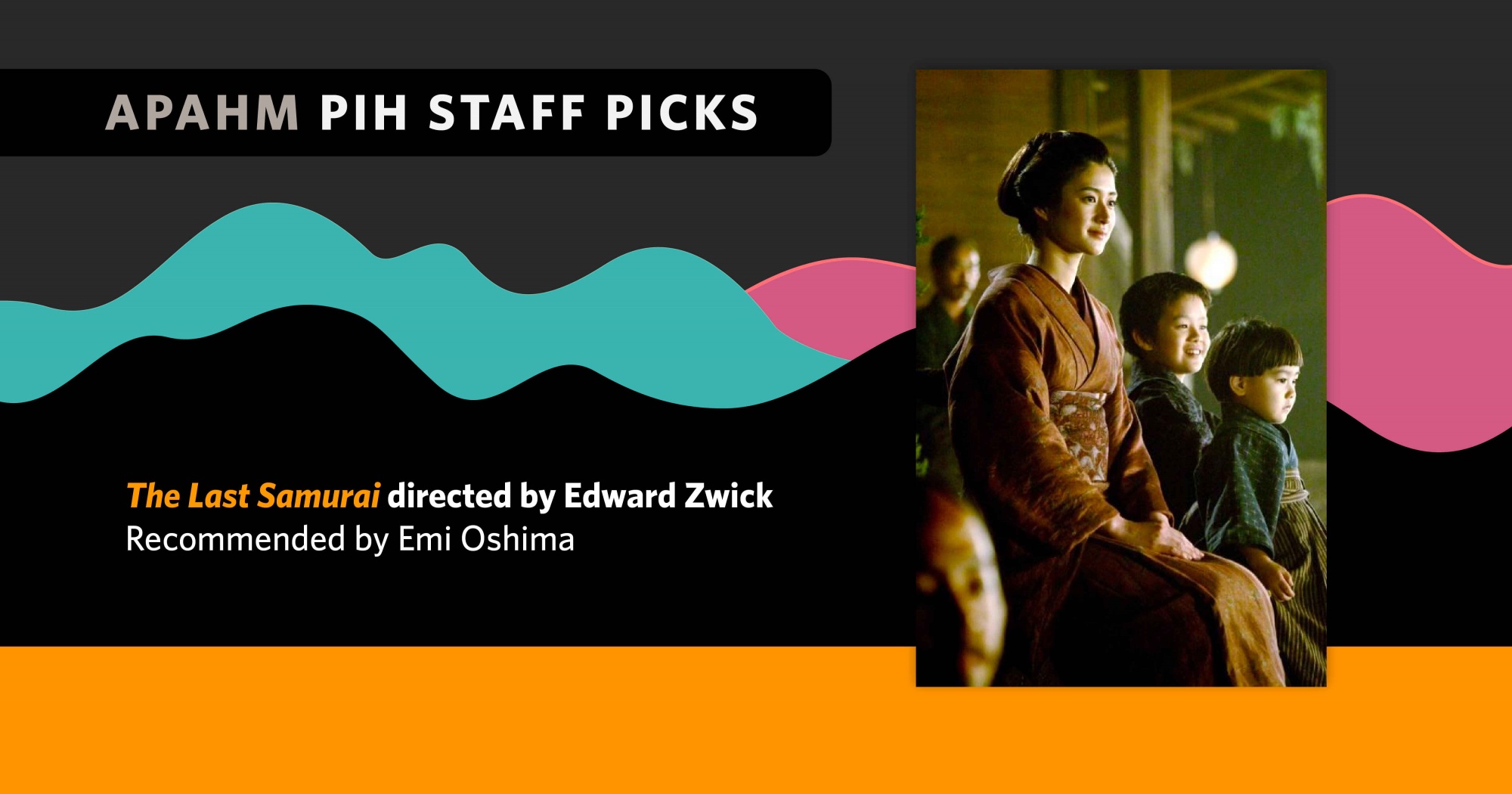
“One of my favorite movies is The Last Samurai – yes, the one with Tom Cruise! I feel it very accurately portrays Japanese culture, and more specifically the samurai. I still remember sitting in the theater with my dad, who was born and raised in Japan (I was born there, too!) and being shocked when he said he enjoyed the film. We come from samurai on his mother’s side of the family, and every time I watch the movie, I think of the scene with Cruise’s character, Captain Algren, and the Samurai lord, Katsumoto: ‘The perfect blossom is a rare thing. You could spend your entire life looking for one, and it would not be a wasted life.’ The word ‘samurai’ translated to English means ‘to serve’, and it is a striving for perfection in every movement, in every breath, that reminds me of the service, honor and grace of acceptance I carry deep within me and that my ancestors are always guiding me, gratefully.”
—Emi Oshima, Executive Assistant to Chief Development Officer
|
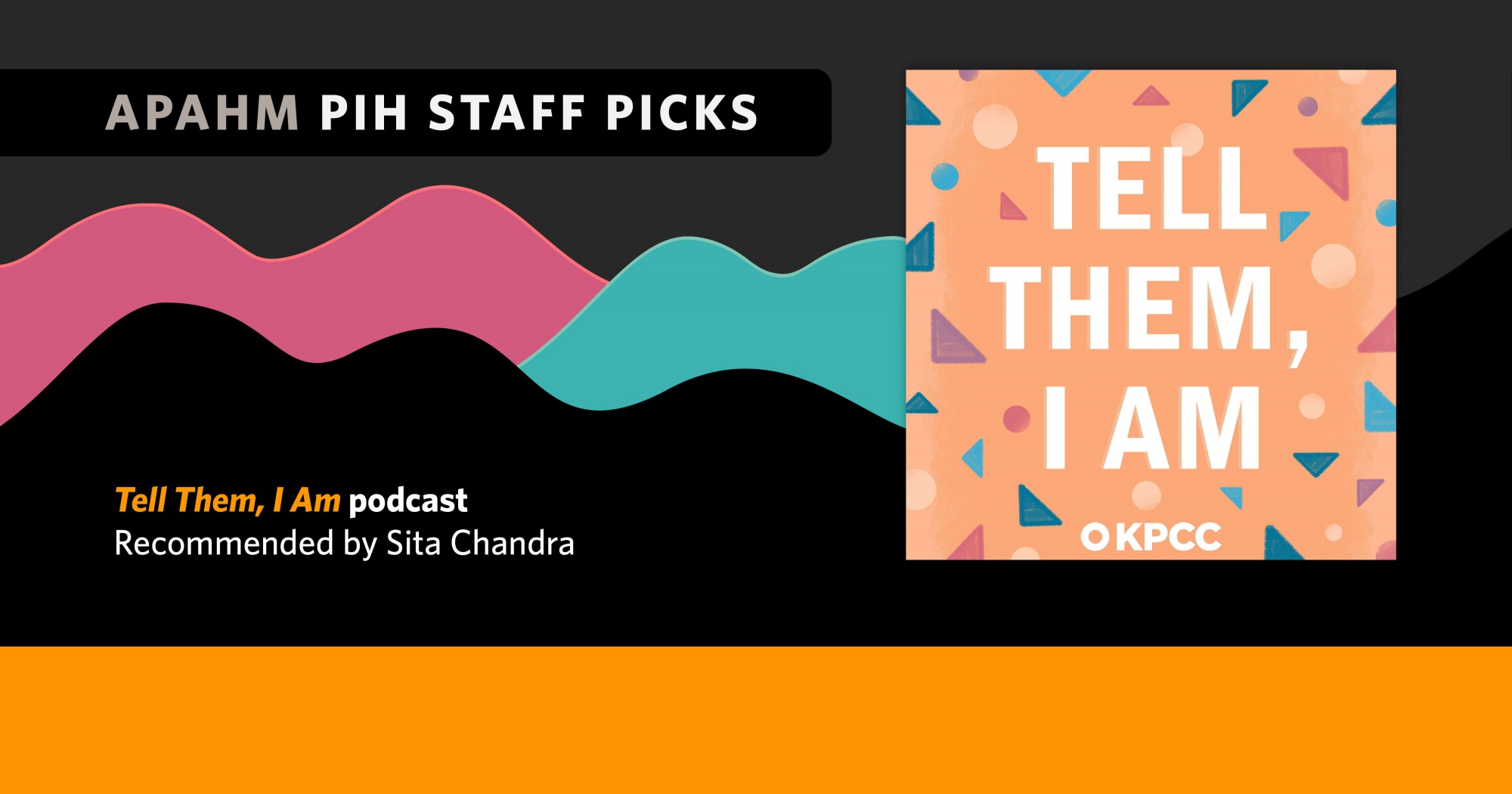
“I want to share this amazing podcast I recently discovered – Tell Them, I Am. They range from 15-20 minutes each and they are all short stories on the defining moments in people’s lives. Every episode is so powerful—it feels like I’m sitting across the table from them as they share their story. As the show states, the stories are universal and the voices are all Muslim. As a South Asian-American Hindu, I am learning a lot about how much our culture, religion, and identities intersect, and it makes me feel a little less alone in this complicated world.”
—Sita Chandra; Associate, Clinical Operations
|
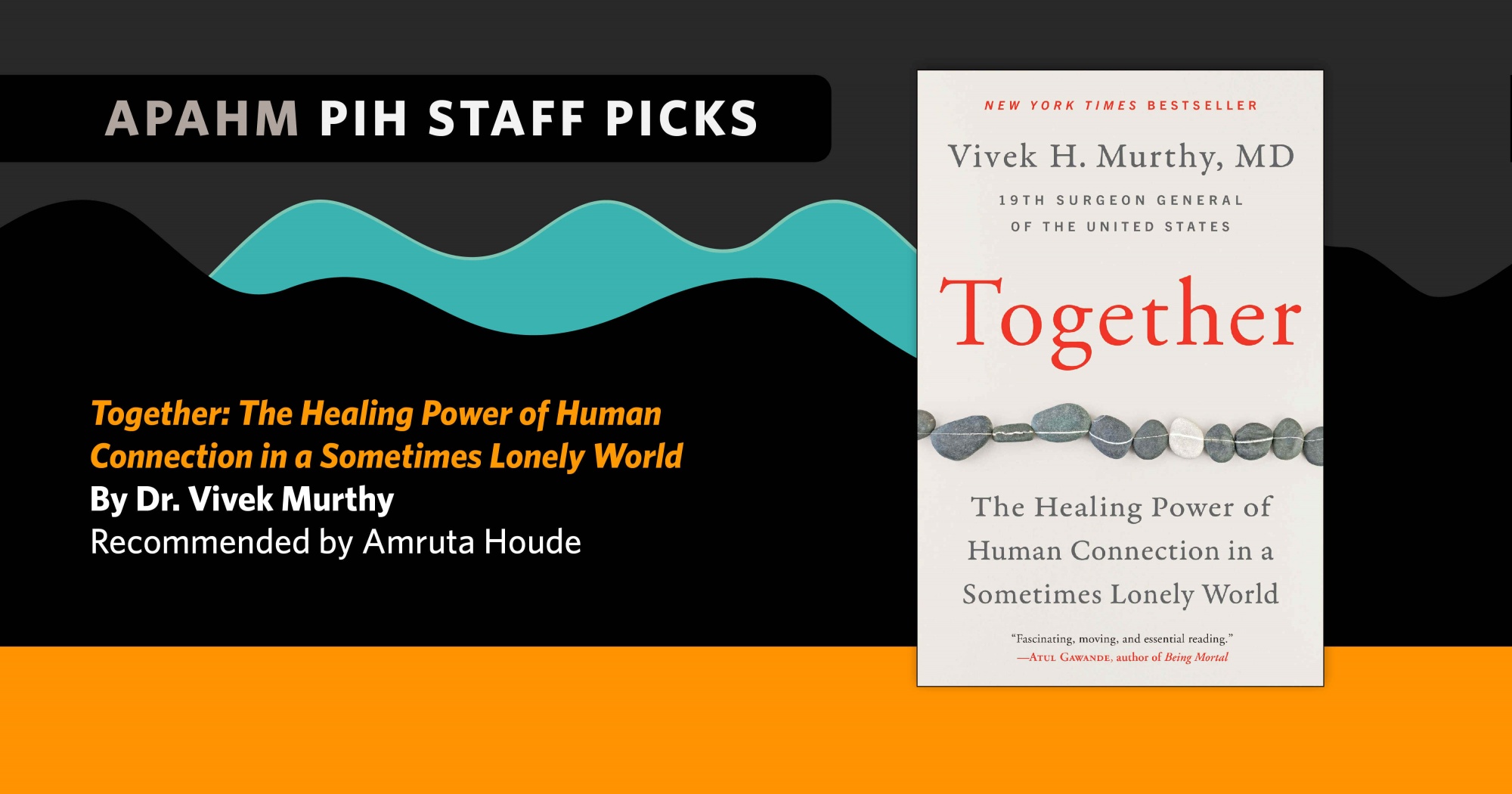
“In the book Together: The Healing Power of Human Connection in a Sometimes Lonely World Dr. Vivek Murthy explores the public health epidemic of loneliness, how it is at the core of a number of other public health crises, and the human experience of searching for connection. After immigrating to the U.S., my parents, like many other immigrants, were disconnected from their network and support systems. We believe in the Sanskrit phrase ‘vasudhaiva kutumbakam’ (the whole world is one family). This phrase has guided my family and I to find our togetherness through serving the community around us.”
—Amruta Houde, Cross-Site Mental Health Associate
|
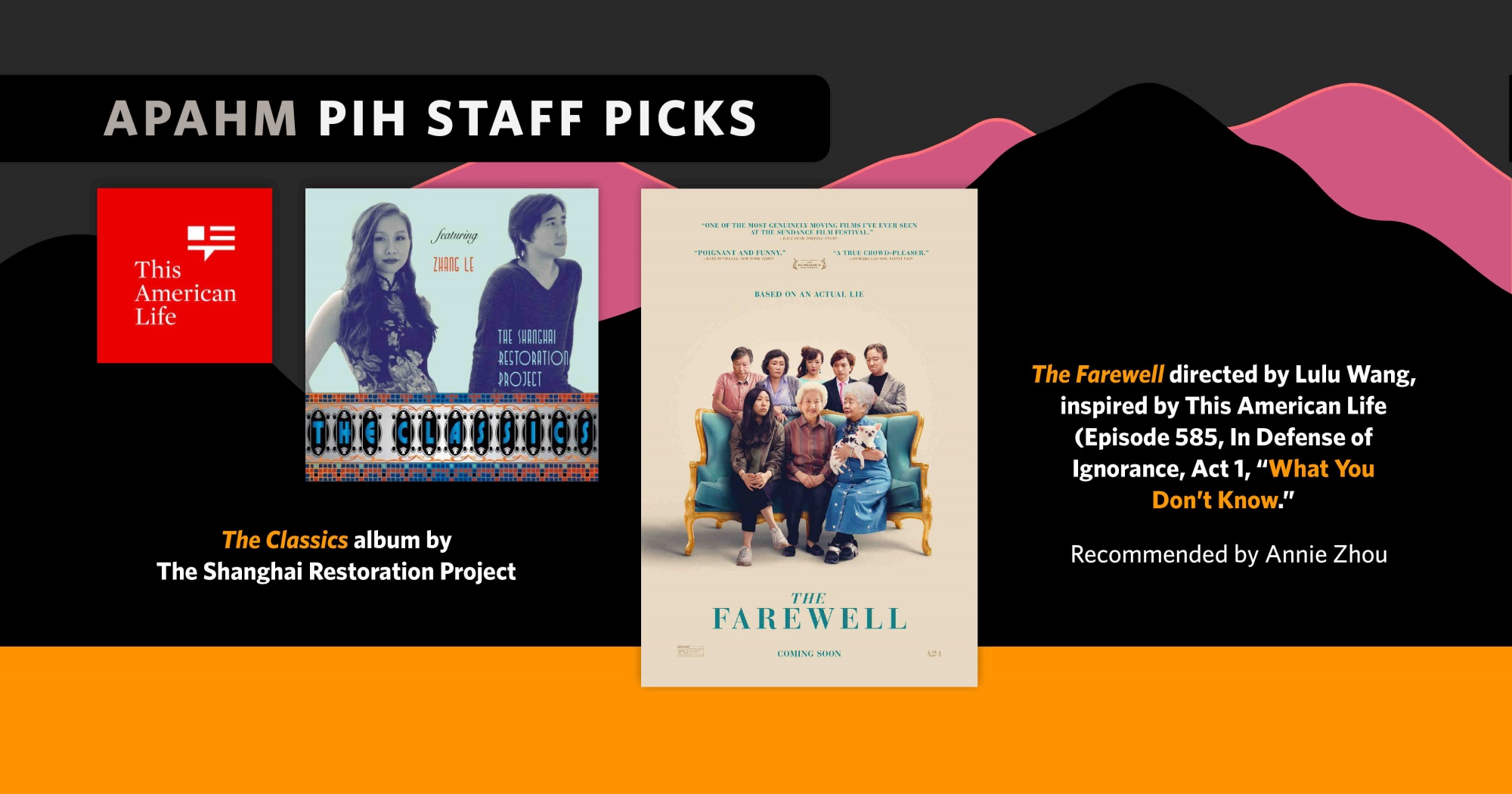 “I recommend The Farewell directed by Lulu Wang. It's about a family that decides to lie to their grandmother about her terminal cancer diagnosis, and illustrates, in beautiful nuances, the lengths a family is willing to go for the ones they love. It's a story that challenges the traditional notions of Americanness, responsibility, and belonging. The story was first told in podcast form on This American Life (Episode 585, In Defense of Ignorance, Act 1, “What You Don’t Know”)—both are worth a watch/listen! For music, I recommend The Shanghai Restoration Project’s album called The Classics. They remix popular songs from Shanghai’s jazz age with more contemporary beats and electronic music.” “I recommend The Farewell directed by Lulu Wang. It's about a family that decides to lie to their grandmother about her terminal cancer diagnosis, and illustrates, in beautiful nuances, the lengths a family is willing to go for the ones they love. It's a story that challenges the traditional notions of Americanness, responsibility, and belonging. The story was first told in podcast form on This American Life (Episode 585, In Defense of Ignorance, Act 1, “What You Don’t Know”)—both are worth a watch/listen! For music, I recommend The Shanghai Restoration Project’s album called The Classics. They remix popular songs from Shanghai’s jazz age with more contemporary beats and electronic music.”
—Annie Zhou; Senior Project Lead, USPHAU
|
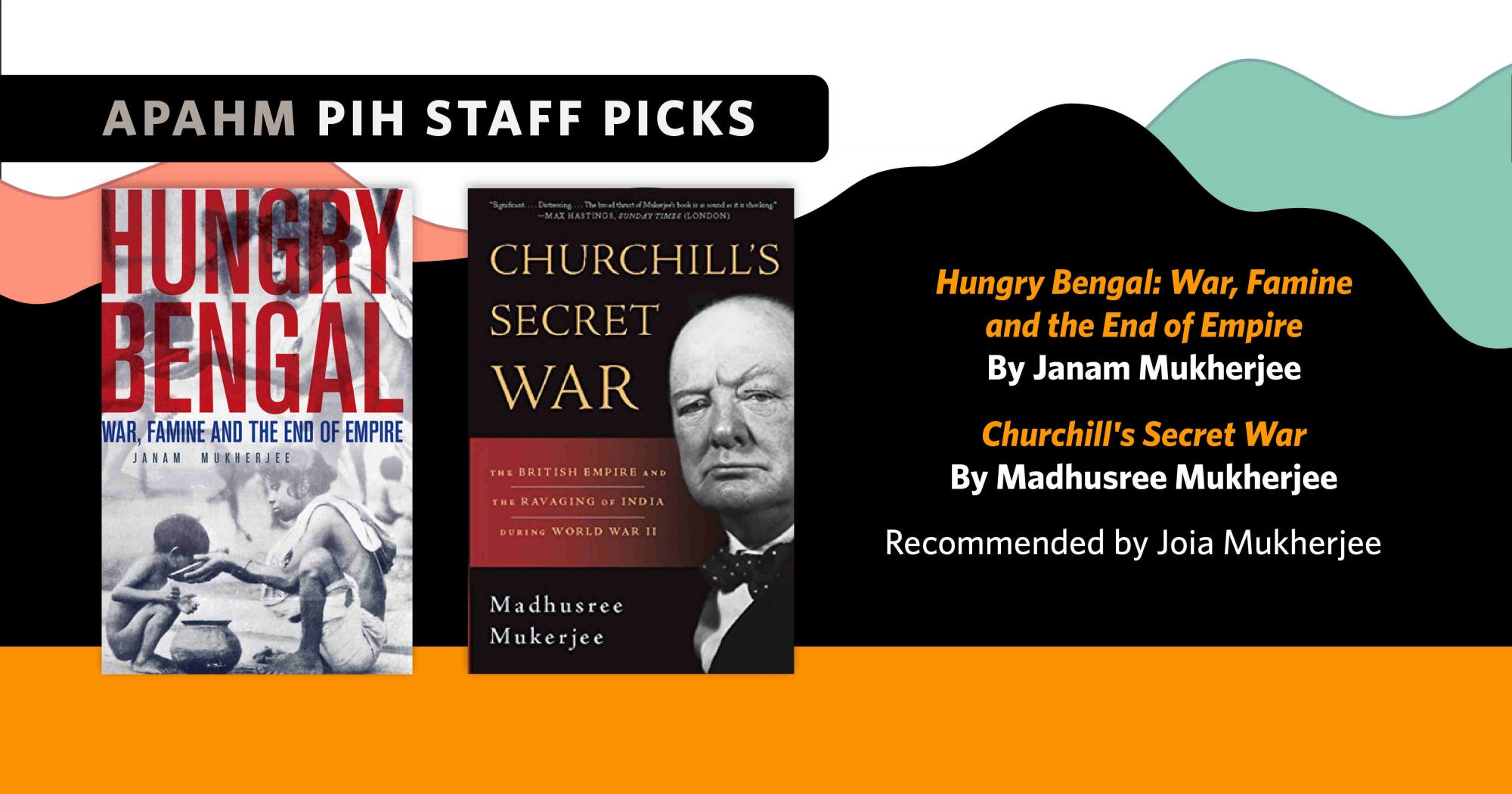
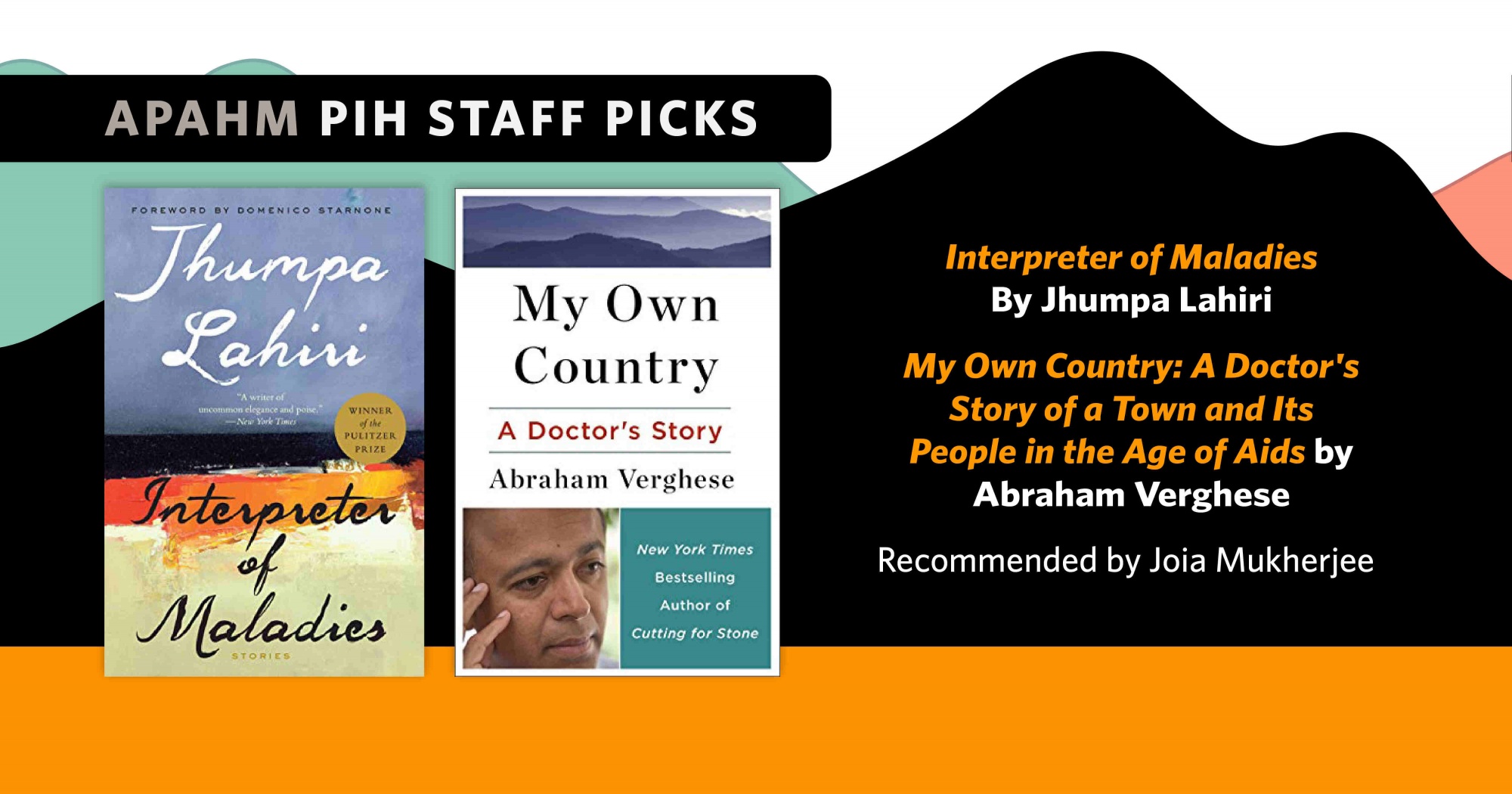 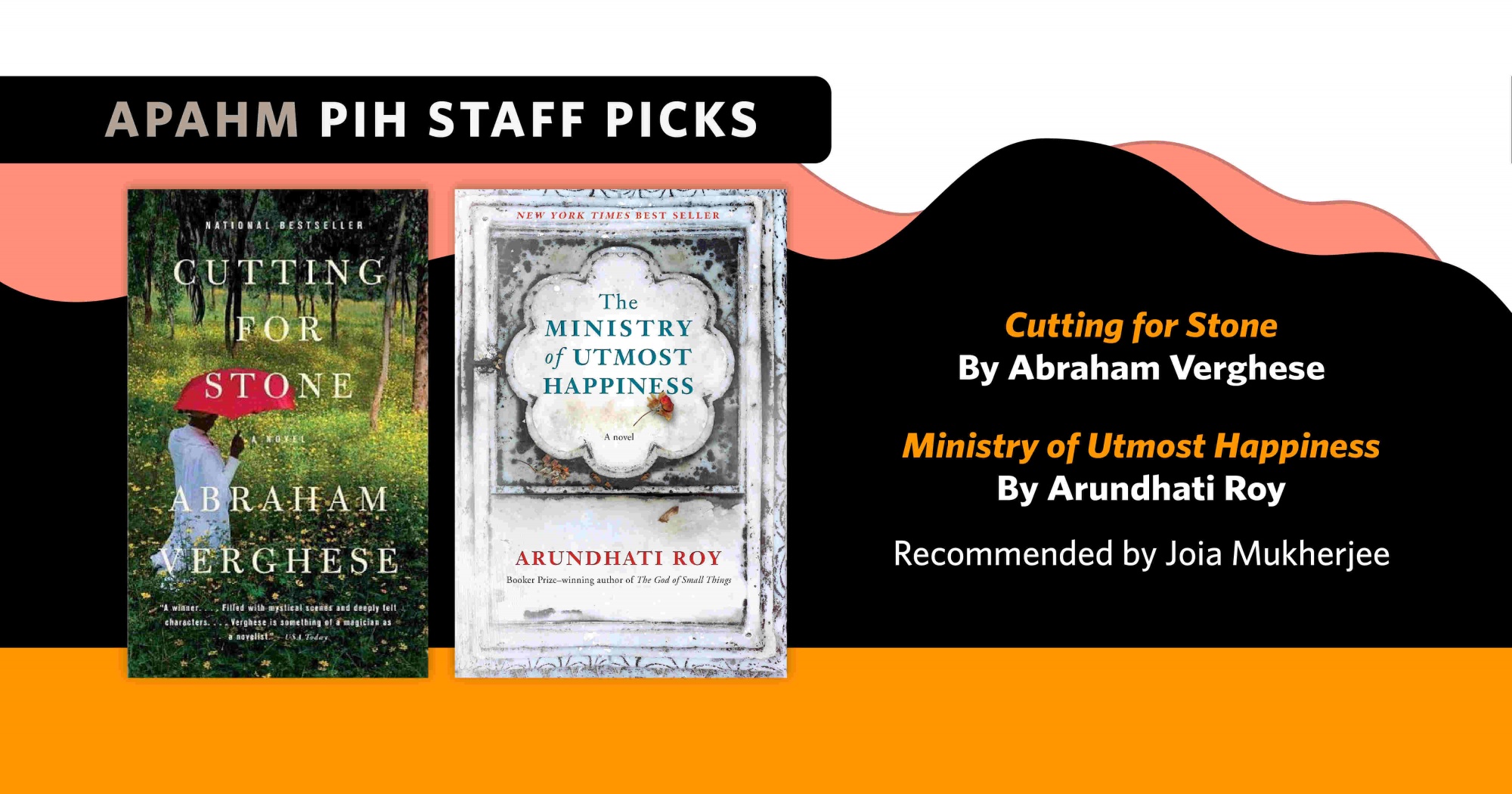 “As an Indian American, my dad immigrated to the U.S. in 1957. Understanding the impact of British colonialism in India has helped my family and I to make sense of many of the struggles that caused by dad to flee India just 10 years after independence. My brother, Dr. Janam Mukherjee (an anthropologist and historian), has written a brilliant book about famine in Bengal called Hungry Bengal: War, Famine and the End of Empire, which details how food insecurity and famine is caused and upheld by the powerful. A similar book, written by a journalist Madushree Mukerjee (no relation), called Churchill's Secret War is about the racism of Winston Churchill and the intentional starvation of Bengalis. There is a great collection of short fictional stories—Interpreter of Maladies by Jhumpa Lahiri—about the Indian immigrant experience. There is also the interesting account of an African doctor of Indian descent who works in the U.S. south to get his green card and uncovers an epidemic of men returning home with AIDS—Abraham Vergese’s My Own Country: A Doctor's Story of a Town and Its People in the Age of Aids. He is also the author of the outstanding fictional book—Cutting for Stone— about Indian diaspora in Africa, tuberculosis, and medicine. Additionally, Arunduti Roy’s recent novel, The Ministry of Utmost Happiness, is an interesting fictional account of the rise of Hindu nationalism and the war on the poor, Muslims, and other ‘subaltern’ groups that started under Modi in Gujarat.” “As an Indian American, my dad immigrated to the U.S. in 1957. Understanding the impact of British colonialism in India has helped my family and I to make sense of many of the struggles that caused by dad to flee India just 10 years after independence. My brother, Dr. Janam Mukherjee (an anthropologist and historian), has written a brilliant book about famine in Bengal called Hungry Bengal: War, Famine and the End of Empire, which details how food insecurity and famine is caused and upheld by the powerful. A similar book, written by a journalist Madushree Mukerjee (no relation), called Churchill's Secret War is about the racism of Winston Churchill and the intentional starvation of Bengalis. There is a great collection of short fictional stories—Interpreter of Maladies by Jhumpa Lahiri—about the Indian immigrant experience. There is also the interesting account of an African doctor of Indian descent who works in the U.S. south to get his green card and uncovers an epidemic of men returning home with AIDS—Abraham Vergese’s My Own Country: A Doctor's Story of a Town and Its People in the Age of Aids. He is also the author of the outstanding fictional book—Cutting for Stone— about Indian diaspora in Africa, tuberculosis, and medicine. Additionally, Arunduti Roy’s recent novel, The Ministry of Utmost Happiness, is an interesting fictional account of the rise of Hindu nationalism and the war on the poor, Muslims, and other ‘subaltern’ groups that started under Modi in Gujarat.”
—Dr. Joia Mukherjee, Chief Medical Officer
|
| |
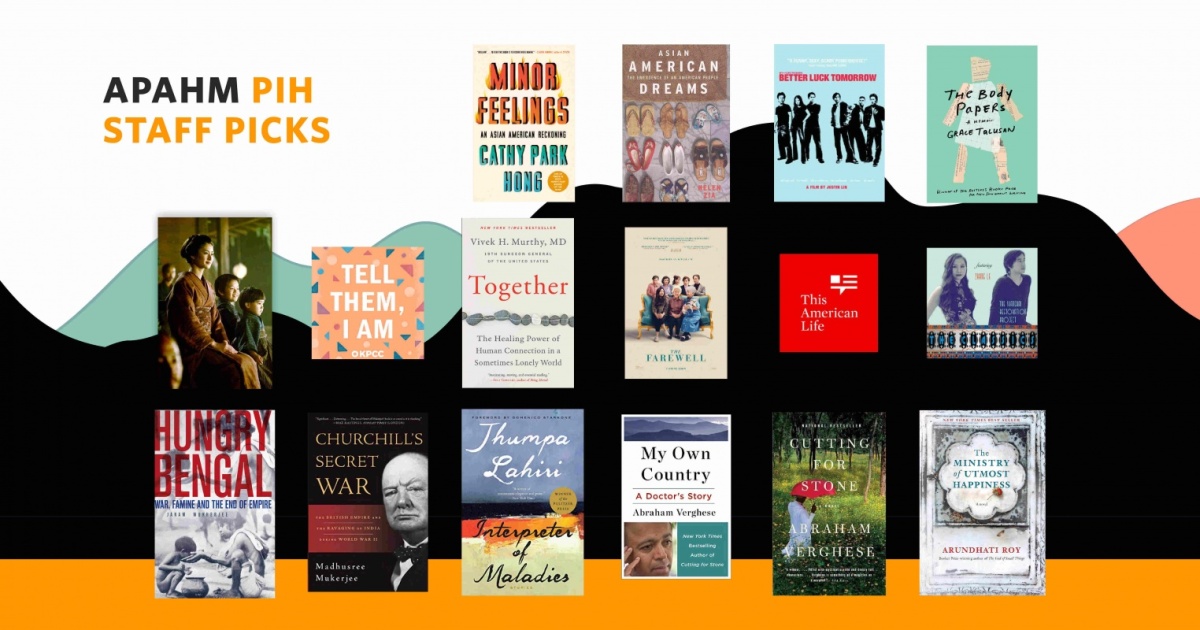






 “I recommend The Farewell directed by Lulu Wang. It's about a family that decides to lie to their grandmother about her terminal cancer diagnosis, and illustrates, in beautiful nuances, the lengths a family is willing to go for the ones they love. It's a story that challenges the traditional notions of Americanness, responsibility, and belonging. The story was first told in podcast form on This American Life (Episode 585, In Defense of Ignorance, Act 1, “
“I recommend The Farewell directed by Lulu Wang. It's about a family that decides to lie to their grandmother about her terminal cancer diagnosis, and illustrates, in beautiful nuances, the lengths a family is willing to go for the ones they love. It's a story that challenges the traditional notions of Americanness, responsibility, and belonging. The story was first told in podcast form on This American Life (Episode 585, In Defense of Ignorance, Act 1, “

 “As an Indian American, my dad immigrated to the U.S. in 1957. Understanding the impact of British colonialism in India has helped my family and I to make sense of many of the struggles that caused by dad to flee India just 10 years after independence. My brother, Dr. Janam Mukherjee (an anthropologist and historian), has written a brilliant book about famine in Bengal called Hungry Bengal: War, Famine and the End of Empire, which details how food insecurity and famine is caused and upheld by the powerful. A similar book, written by a journalist Madushree Mukerjee (no relation), called Churchill's Secret War is about the racism of Winston Churchill and the intentional starvation of Bengalis. There is a great collection of short fictional stories—Interpreter of Maladies by Jhumpa Lahiri—about the Indian immigrant experience. There is also the interesting account of an African doctor of Indian descent who works in the U.S. south to get his green card and uncovers an epidemic of men returning home with AIDS—Abraham Vergese’s My Own Country: A Doctor's Story of a Town and Its People in the Age of Aids. He is also the author of the outstanding fictional book—Cutting for Stone— about Indian diaspora in Africa, tuberculosis, and medicine. Additionally, Arunduti Roy’s recent novel, The Ministry of Utmost Happiness, is an interesting fictional account of the rise of Hindu nationalism and the war on the poor, Muslims, and other ‘subaltern’ groups that started under Modi in Gujarat.”
“As an Indian American, my dad immigrated to the U.S. in 1957. Understanding the impact of British colonialism in India has helped my family and I to make sense of many of the struggles that caused by dad to flee India just 10 years after independence. My brother, Dr. Janam Mukherjee (an anthropologist and historian), has written a brilliant book about famine in Bengal called Hungry Bengal: War, Famine and the End of Empire, which details how food insecurity and famine is caused and upheld by the powerful. A similar book, written by a journalist Madushree Mukerjee (no relation), called Churchill's Secret War is about the racism of Winston Churchill and the intentional starvation of Bengalis. There is a great collection of short fictional stories—Interpreter of Maladies by Jhumpa Lahiri—about the Indian immigrant experience. There is also the interesting account of an African doctor of Indian descent who works in the U.S. south to get his green card and uncovers an epidemic of men returning home with AIDS—Abraham Vergese’s My Own Country: A Doctor's Story of a Town and Its People in the Age of Aids. He is also the author of the outstanding fictional book—Cutting for Stone— about Indian diaspora in Africa, tuberculosis, and medicine. Additionally, Arunduti Roy’s recent novel, The Ministry of Utmost Happiness, is an interesting fictional account of the rise of Hindu nationalism and the war on the poor, Muslims, and other ‘subaltern’ groups that started under Modi in Gujarat.”
